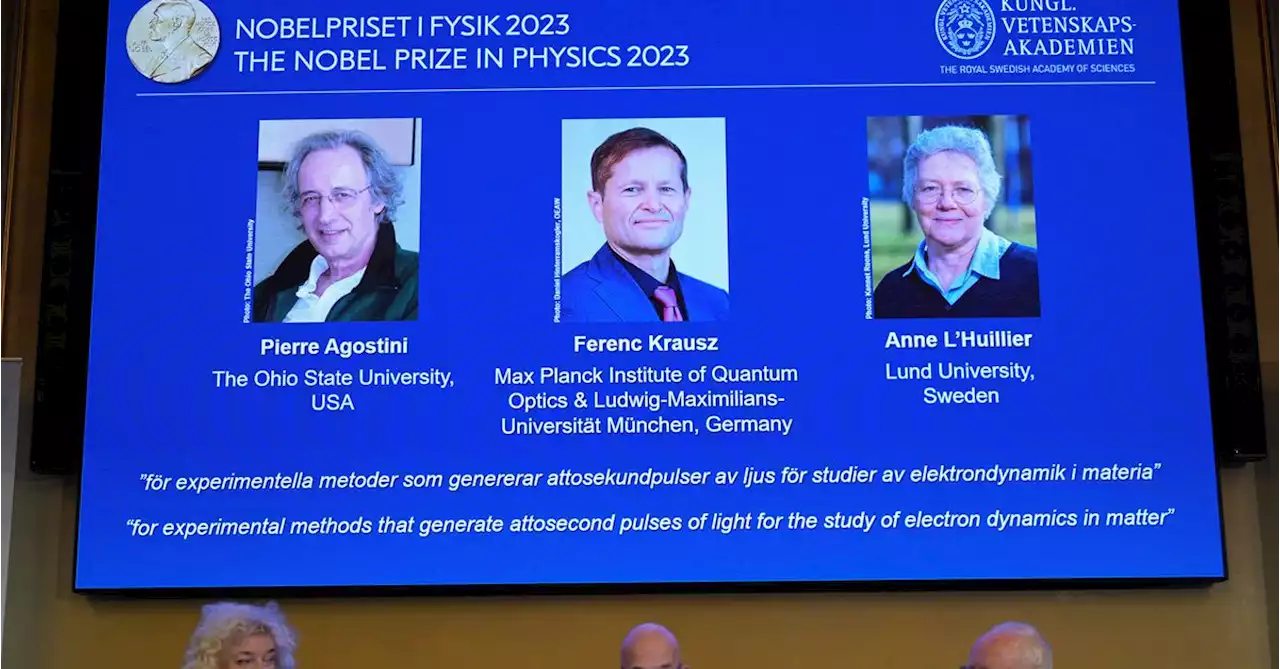Scientists Pierre Agostini, Ferenc Krausz and Anne L'Huillier won the 2023 Nobel Prize in Physics for creating incredibly short pulses of light that can capture processes inside atoms and molecules, in work which could advance medical diagnostics and electronics.
The Nobel academy said their studies had given humanity new tools for exploring the movement of electrons inside atoms, where changes occur in a few tenths of an attosecond - a unit so short that there are as many attoseconds in one second as there have been seconds since the birth of the universe.
It was once thought that these changes in electrons could not be seen, but the use of attosecond pulses has changed this, she added. L'Huillier, who received word she had won the prize in the middle of a lecture, told a news conference over the phone, "it is really a prestigious prize and I'm so happy to get it. It's incredible."Hans Ellegren, permanent secretary of the Royal Academy of Sciences, flanked by Eva Olsson and Mats Larsson, members, announces this year's Nobel Prize winners in Physics, at the Royal Academy of Sciences in Stockholm, Sweden October 3, 2023.
While the award for peace can hog the limelight, the physics prize has likewise often taken centre stage with winners such as Albert Einstein and awards for science that has fundamentally changed how we see the world.quantum entanglement
México Últimas Noticias, México Titulares
Similar News:También puedes leer noticias similares a ésta que hemos recopilado de otras fuentes de noticias.
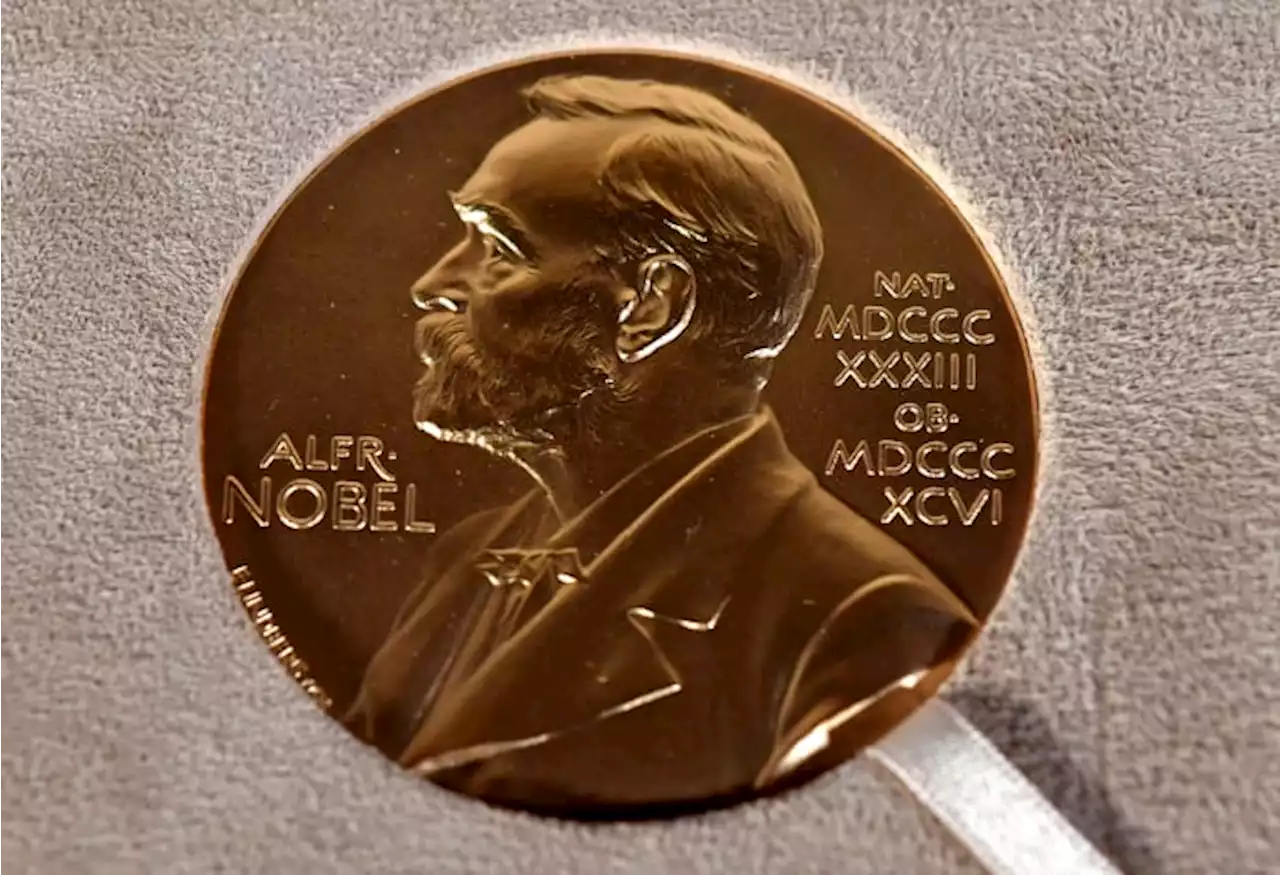 3 scientists win Nobel Prize in physics for looking at electrons in atoms during split secondsThe Nobel Prize in physics has been awarded to three scientists who look at electrons in atoms during the tiniest of split seconds.
3 scientists win Nobel Prize in physics for looking at electrons in atoms during split secondsThe Nobel Prize in physics has been awarded to three scientists who look at electrons in atoms during the tiniest of split seconds.
Leer más »
 Three scientists win Nobel Prize in physics for work on electrons in atoms during split secondsThe Nobel Prize in physics was awarded Tuesday to three scientists who look at electrons in atoms during the tiniest of split seconds.
Three scientists win Nobel Prize in physics for work on electrons in atoms during split secondsThe Nobel Prize in physics was awarded Tuesday to three scientists who look at electrons in atoms during the tiniest of split seconds.
Leer más »
 3 scientists win Nobel Prize in physics for looking at electrons in atomsThree scientists won the Nobel Prize in physics for their work on how electrons move around the atom during the tiniest fractions of seconds
3 scientists win Nobel Prize in physics for looking at electrons in atomsThree scientists won the Nobel Prize in physics for their work on how electrons move around the atom during the tiniest fractions of seconds
Leer más »
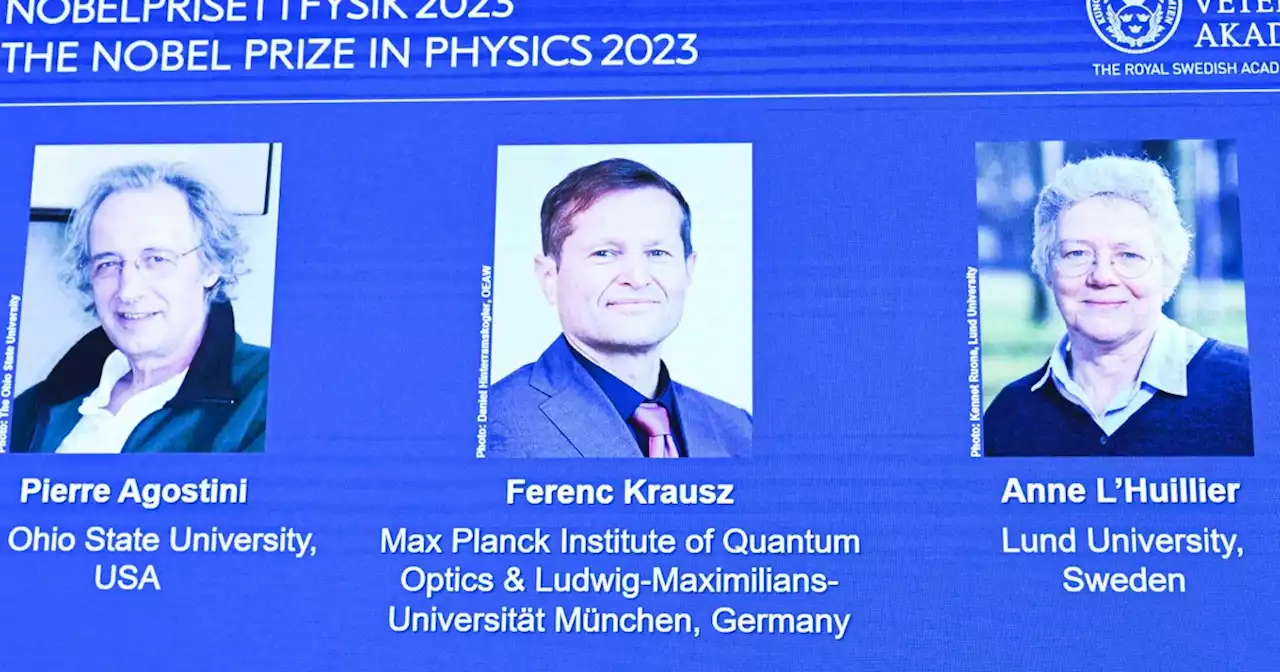 Scientists win physics Nobel for looking at electrons in atoms during split secondsThe trio's experiments “have given humanity new tools for exploring the world of electrons inside atoms and molecules,” according to the Royal Swedish Academy of Sciences.
Scientists win physics Nobel for looking at electrons in atoms during split secondsThe trio's experiments “have given humanity new tools for exploring the world of electrons inside atoms and molecules,” according to the Royal Swedish Academy of Sciences.
Leer más »
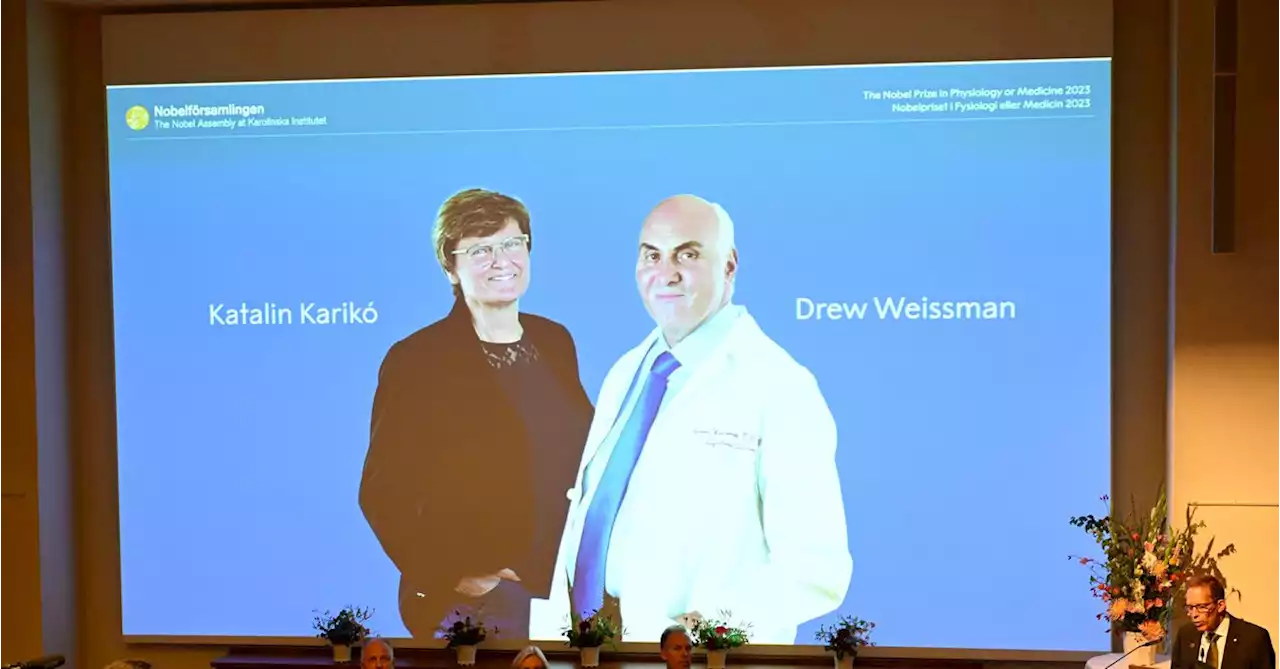 Hungarian and U.S. scientists win medicine Nobel for COVID-19 vaccine workScientists Katalin Kariko and Drew Weissman from Hungary and the United States respectively won the 2023 Nobel Prize in Physiology or Medicine for discoveries enabling the development of mRNA COVID-19 vaccines, the award-giving body said on Monday.
Hungarian and U.S. scientists win medicine Nobel for COVID-19 vaccine workScientists Katalin Kariko and Drew Weissman from Hungary and the United States respectively won the 2023 Nobel Prize in Physiology or Medicine for discoveries enabling the development of mRNA COVID-19 vaccines, the award-giving body said on Monday.
Leer más »
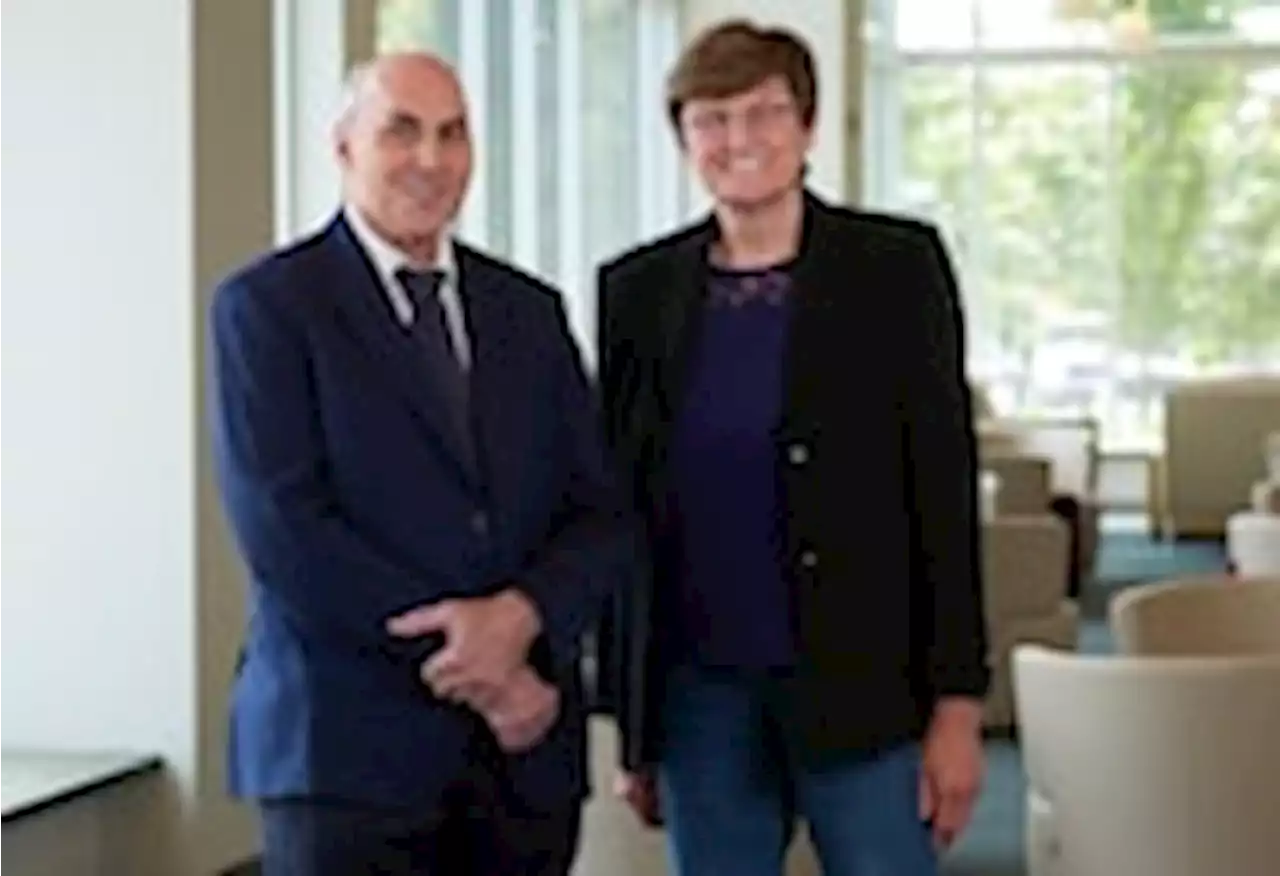 Nobel Prize in medicine awarded to scientists who laid foundation for messenger RNA vaccinesThe Nobel Prize in medicine was awarded to Katalin Kariko and Drew Weissman, scientists who worked together to turn messenger RNA from a fragile genetic material that triggered a problematic immune response into a powerful medicine. Their key breakthrough in 2005 went largely unnoticed, but is now the backbone of two leading coronavirus vaccines and could lead to a whole new class of vaccines and drugs.
Nobel Prize in medicine awarded to scientists who laid foundation for messenger RNA vaccinesThe Nobel Prize in medicine was awarded to Katalin Kariko and Drew Weissman, scientists who worked together to turn messenger RNA from a fragile genetic material that triggered a problematic immune response into a powerful medicine. Their key breakthrough in 2005 went largely unnoticed, but is now the backbone of two leading coronavirus vaccines and could lead to a whole new class of vaccines and drugs.
Leer más »
